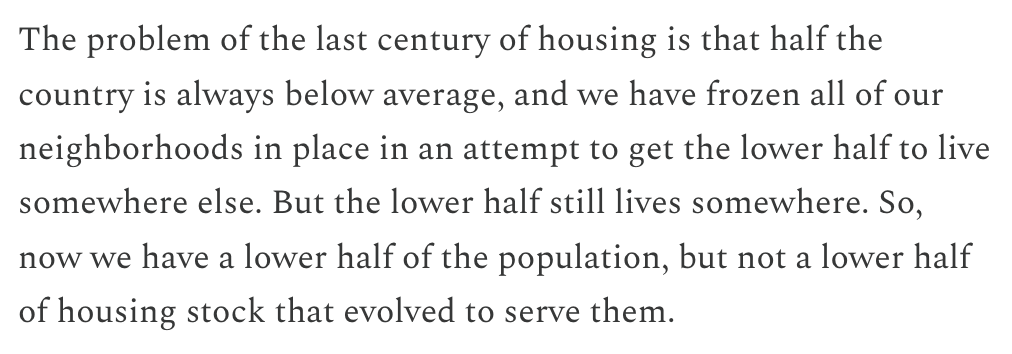dictator.
One thing Biden and Trump have in common is a BBB as their early signature legislative initiative, although they are very different BBBs.
"A much more promising path to abundance than the one this book offers is to embrace a twenty-first-century New Deal. That is the tried-and-true model for a 'liberalism that builds' in the United States" #SandeepVaheesan https://www.bostonreview.net/articles/the-real-path-to-abundance/
// this really is an excellent piece.
From a fantastic piece by @DeanBaker13 (Thanks to David Brooks for provoking it!)
A thing I'd add is that the welfare costs of people not getting treated because prices are too high may rival or even dwarf the financial cost of the patent monopoly.
mock the administration all you want, it is rather a remarkable achievement to render Harvard sympathetic. https://www.wonkette.com/p/kristi-noem-shoots-harvard-as-warning ht @Axomamma
[tech notebook] Scala 3 inline vs implicit ordering https://tech.interfluidity.com/2025/05/22/scala-3-inline-vs-implicit-ordering/index.html
from #KevinErdmann https://kevinerdmann.substack.com/p/a-conversation-about-cities
// a great piece from Kevin Erdmann. exclusive places are really boring, but we've so strangled the possibility of vibrant places that we compete to occupy the highest amenity mausoleums.
 The problem of the last century of housing is that half the country is always below average, and we have frozen all of our neighborhoods in place in an attempt to get the lower half to live somewhere else. But the lower half still lives somewhere. So, now we have a lower half of the population, but not a lower half of housing stock that evolved to serve them.
The problem of the last century of housing is that half the country is always below average, and we have frozen all of our neighborhoods in place in an attempt to get the lower half to live somewhere else. But the lower half still lives somewhere. So, now we have a lower half of the population, but not a lower half of housing stock that evolved to serve them.
Are they fucking with annual flu shots in the way they are fucking with annual COVID boosters?
On how the absence of a strong left cripples policymaking even (perhaps especially) on the liberal center. By #ChrisDillow
Placating the right yields terrible governance — practically, morally. Outcompeting the left requires delivering.
How much does US vaccine politics (e.g. imposing huge burdens on booster by the FDA) affect availability of vaccines outside the US? Will boosters be readily available elsewhere?
it’s hard to believe Elon Musk will become aloof to politics given how much risk he would be in from the criminal justice system under different politics.
@admitsWrongIfProven a phobe fears something. a phage eats it.
what if all of our phobias converted to phagias?
text is now infinite what grows scarcer and scarcer is voice connected to a human soul.
“The enduring strength of a state-dominated Chinese system that can pivot, change policy and redirect resources at will in service of long-term national strength is now undeniable, regardless of whether free-market advocates like it.” #KyleChan https://www.nytimes.com/2025/05/19/opinion/china-us-trade-tariffs.html
[indistinct chatter]
“maybe if you tax poverty you get less of it.”
a "rogue employee" is one who gets caught doing what Elon has asked.
perhaps we should be grateful that the first job to be really perfectly and completely automated by AI is the fraudster.
